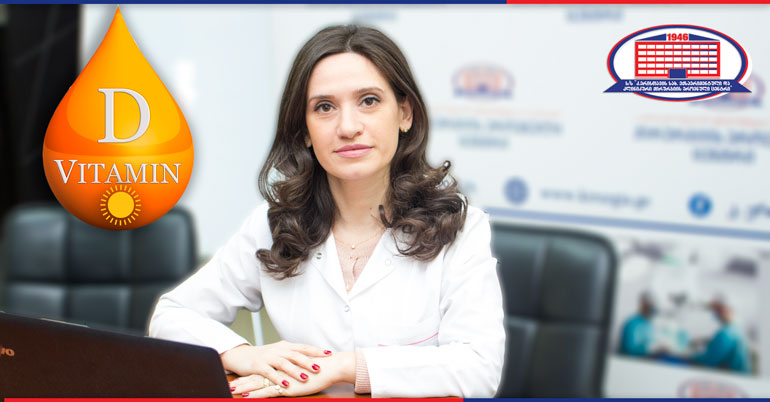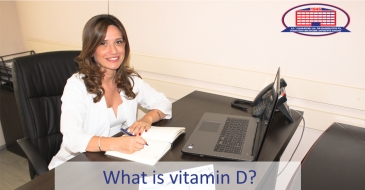
Due to the cold winter days, our organism is often unable to indulge in vitamin D, but the spring can improve it!
If you did not know about this important vitamin, keep in mind that it is desirable to spend a lot of time in the sunny weather and fresh air, because in this way the organism will obtain vitamin D.
It is also called the sunshine vitamin. It is very useful for growth and development of bone and teeth, immunity, positively affects our mood, helps us to absorb calcium.
As a rule, office workers, who spend a lot of time in front of the computers, suffer from this vitamin deficiency. Vitamin D deficiency causes a number of health problems.
How can you recognize the symptoms of vitamin D deficiency? We addressed to Sophio Futuridze, an endocrinologist at the National Center of Surgery.
"Vitamin D deficiency is characterized by the following symptoms: fatigue, acute bone, and muscle pain decrease energy to such level that the person is unable to perform daily activities, reduced immune system, mood change, hair loss. It was traditionally considered that Vitamin D had a great influence on skeletal system and its deficiency caused an exacerbation of rheumatic diseases. However, if we look at modern researches, we notice that the picture changes significantly, the number of illnesses increases. Rickets, osteomalacia, osteoporosis, diabetes, cardiovascular disease, depression, autoimmune diseases - this is a small list of diseases, which have a high risk of developing when the body doesn’t have sufficient amount of vitamin D. "says endocrinologist.
As Dr. Sophie explains in our interview, it is unacceptable to take the vitamin D tablets without the doctor's recommendation!
If you are experiencing similar complaints presented in the article, it is desirable to come to the National Center of Surgery and do the special test in our laboratory to determine the amount of vitamin D in your blood. According to this analysis, the endocrinologist will prescribe an adequate dose of this vitamin.
Direct and natural source of vitamin D is sunlight. Salmon, egg yolk, milk, cereal, yogurt, orange also contain this vitamin. Keep in mind that even though this diet is beneficial, vitamin D stays in blood twice longer when a person enjoys the sunshine because vitamin D is formed in the skin.
According to the endocrinologist of our clinic, vitamin D deficiency screening is recommended for people within high-risk groups, for example:
• Patients with osteoporosis;
• People with malabsorption syndrome;
• Obese people;
• Persons with abnormal Vitamin D metabolism, such as chronic kidney disease.
"It is very important that the reader should take the advice correctly! Unlike spring, the sun is hot in the summer, so it's unacceptable to spend too much time under the sunlight, especially at noon, on a hot summer day! Get some fresh air, give the body an opportunity to absorb the important vitamin. This is one of the easiest ways to maintain health, beauty, and longevity, "said Sophio Futuridze
National Center of Surgery address – Tbilisi, Digomi Chachava street N5.
You can contact the Call-center of the National Center of Surgery at 577 11 91 19 or 2 02 25 25;
If you have some questions, you can contact the endocrinologist of the National Center of Surgery Sophio Futuridze at 593 25 11 55;
Wish you health!








